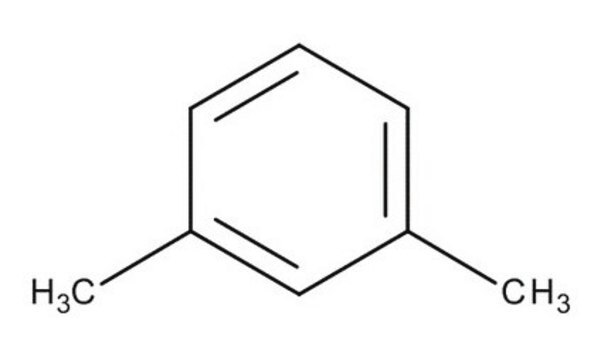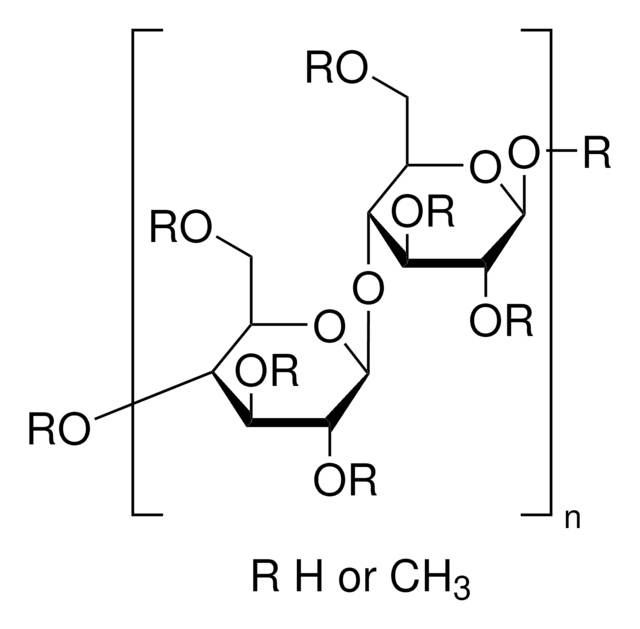185566
m-Xylene
ReagentPlus®, 99%
Sinónimos:
1,3-Dimethylbenzene
About This Item
Productos recomendados
grade
reagent
vapor density
3.7 (vs air)
vapor pressure
16 mmHg ( 37.7 °C)
product line
ReagentPlus®
assay
99%
form
liquid
autoignition temp.
982 °F
expl. lim.
7 %
dilution
(for general lab use)
refractive index
n20/D 1.497 (lit.)
bp
138-139 °C (lit.)
mp
−48 °C (lit.)
density
0.868 g/mL at 25 °C (lit.)
SMILES string
Cc1cccc(C)c1
InChI
1S/C8H10/c1-7-4-3-5-8(2)6-7/h3-6H,1-2H3
InChI key
IVSZLXZYQVIEFR-UHFFFAOYSA-N
¿Está buscando productos similares? Visita Guía de comparación de productos
General description
Application
Legal Information
signalword
Danger
Hazard Classifications
Acute Tox. 4 Dermal - Acute Tox. 4 Inhalation - Aquatic Chronic 3 - Asp. Tox. 1 - Eye Irrit. 2 - Flam. Liq. 3 - Skin Irrit. 2 - STOT SE 3
target_organs
Respiratory system
Storage Class
3 - Flammable liquids
wgk_germany
WGK 2
flash_point_f
80.6 °F - closed cup
flash_point_c
27 °C - closed cup
Elija entre una de las versiones más recientes:
¿Ya tiene este producto?
Encuentre la documentación para los productos que ha comprado recientemente en la Biblioteca de documentos.
Los clientes también vieron
Nuestro equipo de científicos tiene experiencia en todas las áreas de investigación: Ciencias de la vida, Ciencia de los materiales, Síntesis química, Cromatografía, Analítica y muchas otras.
Póngase en contacto con el Servicio técnico










